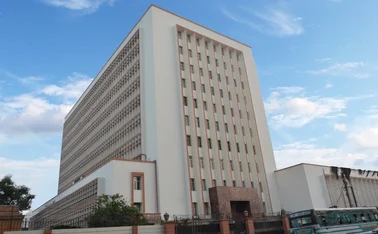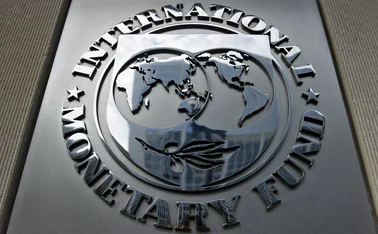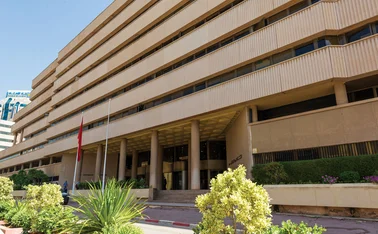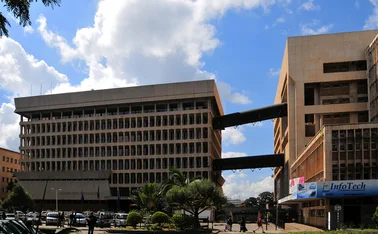
Chinese finance minister Lou Jiwei on local government debt and tax reform
Minister of finance explains how the government plans to tackle China's fiscal problems
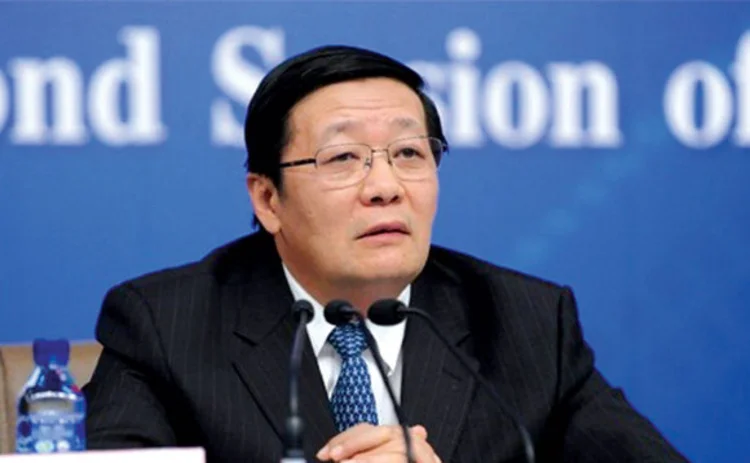
The screening of local government debt is currently in progress. Are you worried that the revealed scale of the issue will escalate, so creating a local debt crisis?
The problem of local government debt is undeniable. Before the revision of the Budget Act, local governments were not allowed to use loans to borrow, according to the related regulations.
But local debt still emerged due to various reasons. In general, the risk of local debt is controllable. For those regions with an excessive proportion of debt, we will need to pay extra attention.
To tackle this increasingly serious problem of local debt, we must adopt a strategy of "opening the front door while blocking the back door" and prevent the occurrence of systematic risk at the same time.
"Opening the front door" means granting local governments the right to issue debt, and this year's budget has included 600 billion yuan for local governments to issue such debt.
"Blocking the back door" refers to calculating and handling the historical debt burdens appropriately, and gradually "digesting" the existing debt stock, or in other words, to de-leverage.
A possible way to solve the problem is to convert local infrastructure projects into projects that can generate stable cashflows, eg by charging tolls (for roads) or fees (for others). If the collected fees are insufficient, these projects could be changed into the "PPP [public-private partnership] model" by providing suitable subsidies, which means the government and private capital invest and manage the infrastructure together (through granting concessions), and the government debts could then also be transformed into corporate debts.
For debts originating from the provision of purely public goods through urban investment vehicles,22 local governments have the responsibility to repay them, and we have reported to the budget office of the National People's Congress Standing Committee to acknowledge these historical debts as legitimate public debt, and allow them to issue local government debt to replace the debt from urban investment companies (UICs), and thereby lower the interest rate.
Moreover, for historical debts resulting from bank loans, according to contract terms, the loan contracts cannot be annulled, so the loans have to be repaid. If the financing vehicle's situation has changed (eg if the UIC went bankrupt), the debt needs to be restructured through mutual renegotiation - hence, certain interim solutions should be adopted. We believe that by applying such methods, we are able to solve the debt problems that have accumulated over many years. Meanwhile, we will formally solve the problem by allowing local governments to issue debt based on the new Budget Act.
How do you interpret proactive fiscal policy under the ‘new normal'?
Not only has China's economy entered a ‘new normal', but the global economy has also stepped into a ‘new normal'. In 2008, the fall of Lehman Brothers highlighted the extent of the global financial crisis and economic downturn. The world is still in a process of de-leveraging. Under the ‘new normal', the trend of global deflation and stagnation is becoming more serious, and there is no clear sign of economic recovery. All this has a huge impact on China's economy.
As for the domestic market in China, the driving forces of the economy are changing, and the problems resulting from the so-called ‘three overlapping periods'23 should be solved for the long term. During this process, we should de-leverage at a stable pace and avoid the tumbling decline of economic growth. To withstand the pressure of economic downturn, suitable expansionary fiscal policy must be adopted. For example, we plan modestly to increase the fiscal deficit rate, from 2.1% in 2014 to 2.3% this year, etc.
Will there be any changes in the national tax policy on personal income? For example, could personal income tax be reduced to stimulate consumption?
Overall, our personal income tax regime is still somewhat irrational in its design. Currently, personal incomes are levied by categories. The reform of the system was proposed at the Third Plenum of the Eighteenth Communist Party of China, changing it into an integrated income tax system. Such a system would be more scientific, since it is unfair to raise the threshold of individual income tax. However, an integrated income tax system requires higher capacity for tax collection and administration. A comprehensive system needed to collect and cross-audit personal income tax information, and the co-operation of different sectors (such as banking, security, insurance, industry and commerce, police, customs and real estate management) is also indispensable. It is still very difficult to implement the reform at the moment due to inadequate co-ordination.
Instead, we are considering making certain improvements based on the current situation. At the end of last year, we proposed the policy of adopting an EET (exempt, exempt, taxed) model on occupational pensions and enterprise annuities. That means that individuals are exempt from personal income tax when making contributions and depositing money into occupational pensions and enterprise annuity accounts, but that people need to pay individual income tax when pension payments are received. This is, in fact, a tax-deferral policy. Under the current tax system, this policy helps to encourage people make more contributions to pension accounts, and thereby improve the replacement rates, and it is beneficial to current consumption as well.
Only users who have a paid subscription or are part of a corporate subscription are able to print or copy content.
To access these options, along with all other subscription benefits, please contact info@centralbanking.com or view our subscription options here: http://subscriptions.centralbanking.com/subscribe
You are currently unable to print this content. Please contact info@centralbanking.com to find out more.
You are currently unable to copy this content. Please contact info@centralbanking.com to find out more.
Copyright Infopro Digital Limited. All rights reserved.
You may share this content using our article tools. Printing this content is for the sole use of the Authorised User (named subscriber), as outlined in our terms and conditions - https://www.infopro-insight.com/terms-conditions/insight-subscriptions/
If you would like to purchase additional rights please email info@centralbanking.com
Copyright Infopro Digital Limited. All rights reserved.
You may share this content using our article tools. Copying this content is for the sole use of the Authorised User (named subscriber), as outlined in our terms and conditions - https://www.infopro-insight.com/terms-conditions/insight-subscriptions/
If you would like to purchase additional rights please email info@centralbanking.com
Most read
- ECB says iPhone is currently incompatible with digital euro
- Supervisors grapple with the smaller bank dilemma
- Schnabel: ECB could replace central forecast scenario

